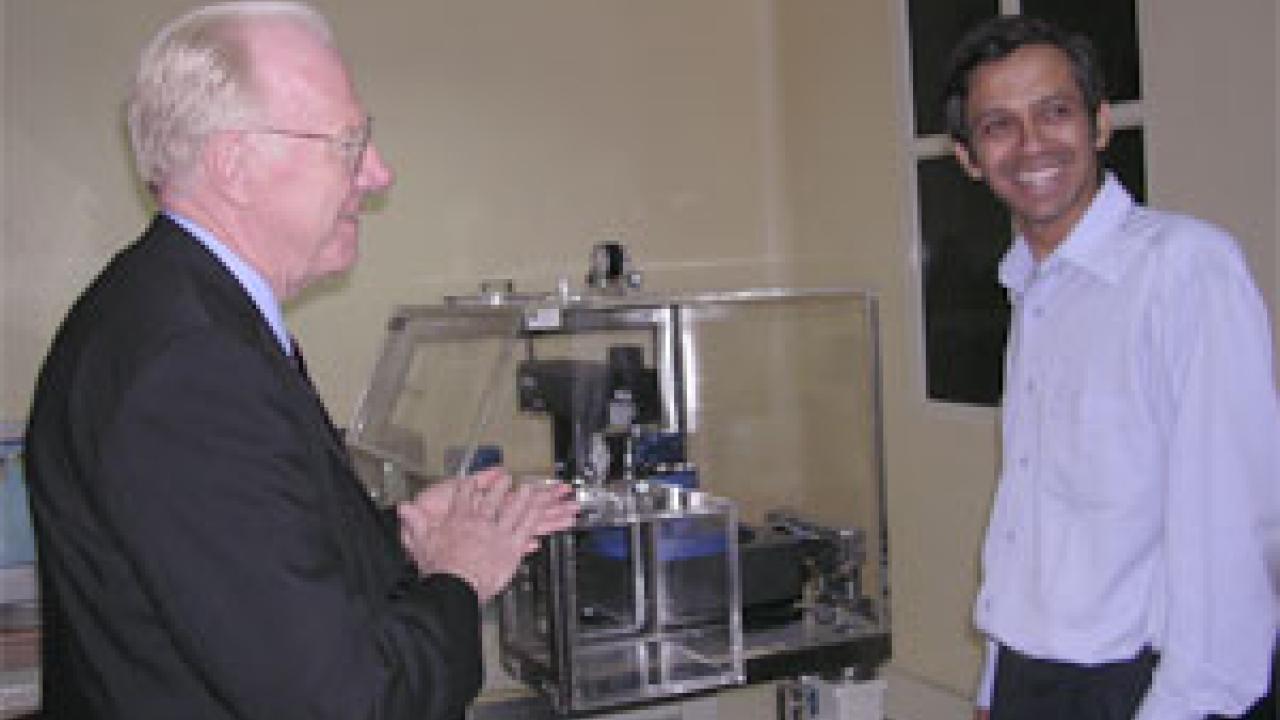Though some constraints have been eased, post-9/11 travel restrictions continue to make some international exchanges difficult, a recent UC Davis delegation to south Asia was told. It was among the challenges noted by representatives of institutions in India.
As well, the length of India's baccalaureate programs is typically three years, making it difficult for Indian applicants to American universities to competitively qualify for admission to most graduate programs. The possibility of students completing two years of study in India, followed by two years at UC Davis, was broached.
More financial aid is also important — to combat what is perceived as very high U.S. fees compared with other countries' universities. But perhaps the greatest challenge — and opportunity — lies in assisting India in extending educational opportunities to a greater proportion of its population, said Chancellor Larry Vanderhoef.
"As I quickly learned in briefing university leaders in India about UC Davis, our selectivity is not impressive compared with theirs. Where we typically consider some 30,000 applications for about 4,600 first-year student spaces, Indian universities would consider some 150,000 applications for those same 4,600 spots."
A further challenge for India is the high percentage of its students who remain abroad after completing their studies, discouraged by India's comparatively poor infrastructure — its roads, power system and government bureaucracy — and pressured by their U.S.-born children to stay.
That has started the group thinking about ways UC could contribute to India-based educational programs — a suggestion that Vanderhoef says he will raise with UC President Bob Dynes and his UC chancellor colleagues.
Media Resources
Maril Revette Stratton, (530) 752-9566, mrstratton@ucdavis.edu
